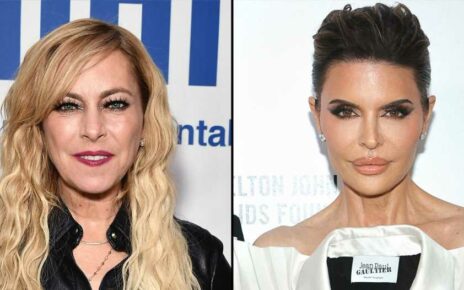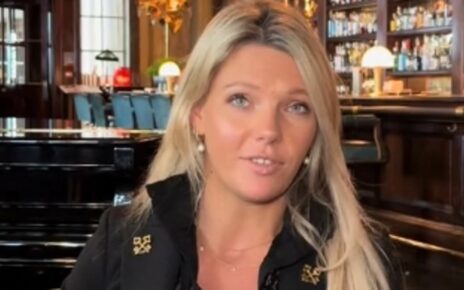BBC Chair Richard Sharp said he has U-turned on feeling the BBC was “bloated, self important and heard too much of its own voice” when he took the job on two years ago, as he argued he can stave off government interference.
In conversation with Homeland star David Harewood, Sharp revealed he had a highly negative view of the corporation prior to joining but was told by Prime Minister Boris Johnson to “treat making the BBC great as his mission.”
He has since engaged with the BBC’s critics and seen that the corporation is “quite extraordinary in how it bats above its budget.”
“The bang for the buck it creates speaks to the extraordinary quality and talented people who are making good decisions,” he added. “In addition, as a brand I hope we can attract talented people who want to work here. We benefit from not being in a capitalist model.”
The former Goldman Sachs banker said his current view represents a U-turn from when he viewed the BBC as “bloated, self important and hearing too much of its own voice.”
Sharp, who used to be a Conservative Party donor and was Conservative leadership hopeful Rishi Sunak’s mentor, also said he is “pretty confident” he can deal with any government interference issues.
“I’ll communicate with the government and am pretty confident they will listen,” he added.
“We should raise our heads above the parapet and talk about the value of the BBC to the whole of the UK. We need to rediscover self belief and inspire itself into thinking we have a great future. That goes with strategy and funding, which we will provide.”
As the future of the BBC’s funding model hangs in the balance, he argued it now needs to “develop some commercial anxiety” while focusing on speaking to underserved demographics, minorities and nations.”
Sharp flagged the launch of the TV Access Project (TAP), the disabled access initiative revealed by Deadline that the BBC has led on with support from others such as Disney, Paramount and ITV. Leading on such initiatives mean the BBC can set itself apart from the streamers, said Sharp.
“We led on TAP. Disney joined but people like Netflix chose not to, so it’s our strategic necessity to drive good practice in this industry.”
While talking up the success of BBC iPlayer as only “5% to 10% behind Netflix” at a fraction of the cost, he rejected the idea that iPlayer can be monetized in any great way outside of the UK.
“I’ve been quite surprised at the success of [BBC/ITV-owned streamer] BritBox International,” he added. “Part of our strategic review will be figuring out how to capture market demand for contnet we produce globally but we have to recognize we are in stage three of the streamer wars so capturing D2C [revenue] could be incredibly challenging.”
Must Read Stories
‘The Batman’ Director Matt Reeves Sets New Deals At Warner Bros & WBTV
Mireille Enos Joins Bob Odenkirk In AMC Series ‘Straight Man’
‘P-Valley’ Star J. Alphonse Nicholson Tackles ‘Black Spartans’ From Director Ben Cory Jones
Disability In UK TV: Assessing State Of Play A Year After Jack Thorne Edinburgh Speech
Read More About:
Source: Read Full Article





